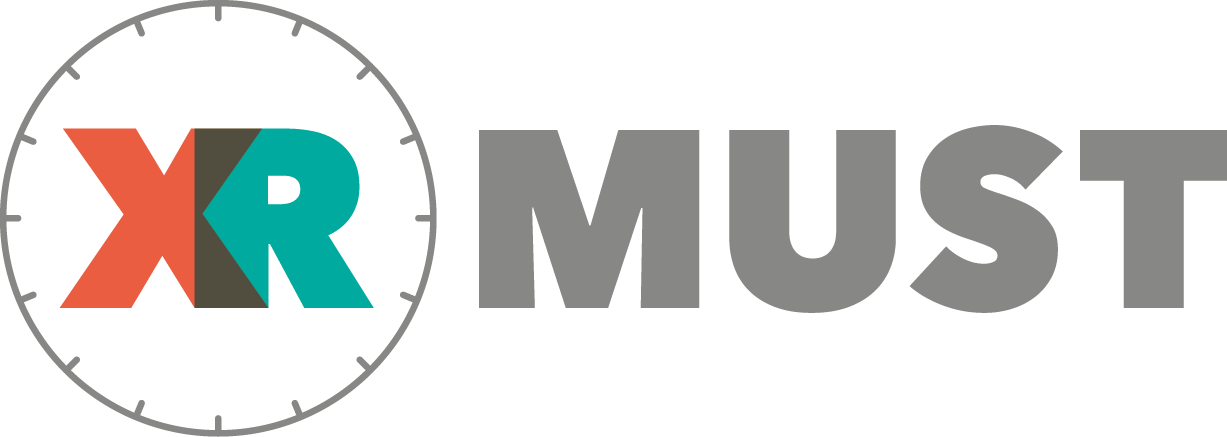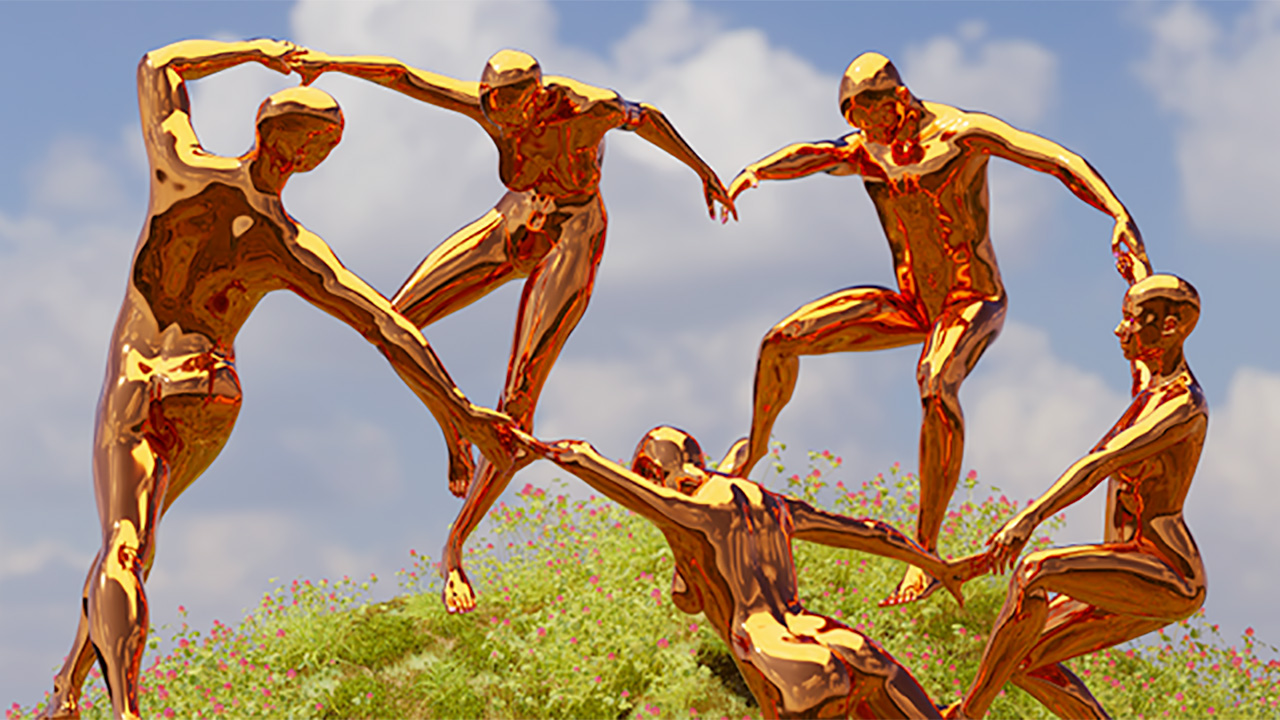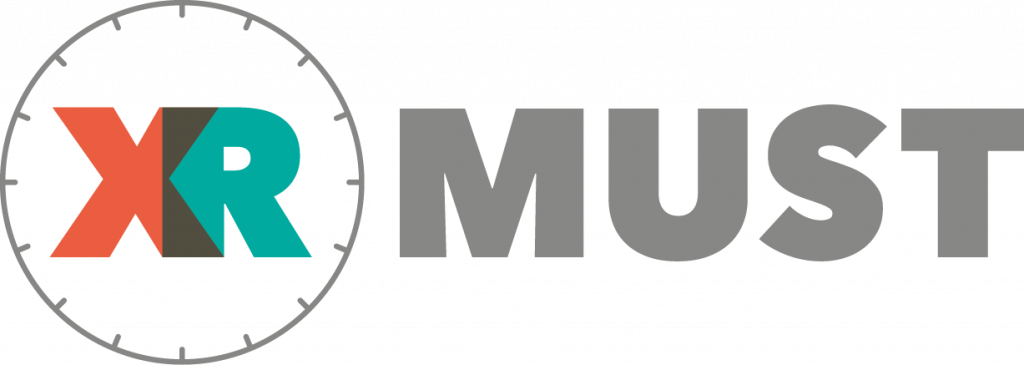Dissecting the grammar of an immersive project from the start: this is the subject of many creative workshops that allow artists and producers to take the time to work on the development of their experience. Among these workshops, EUCL (European Creators’ Lab) has been offering for 4 years a real opportunity to reflect on the very essence of XR creation – surrounded by the best international specialists.
Created by Astrid Kahmke in Germany in 2017, EUCL is divided into two parts. On the one hand, 5 days of intensive workshops, ideation and rapid prototyping with the Development Lab. Online this year from November 15 to 19 with +43 participants, 23 countries represented and 15 speakers from around the world. On the other hand, in association with Stereopsia in Belgium, 3 days of masterclass online and two days in-person meetings in December.
The European Creators’ Lab is organized by the XR HUB Bavaria, in partnership with the Games & XR Association Mitteldeutschland, financed with the support of the Creative Europe MEDIA Programme of the European Union, the FilmFernsehFonds Bayern (FFF), and the Mitteldeutsche Medienförderung (MDM).
What is EUCL (European Creators’ Lab)
Astrid Kahmke – We imagined EUCL as a sandbox for creative people from all different artistic backgrounds who want to explore opportunities and diverse possibilities of immersive storytelling. That’s the focus, from the start. Back in 2016 I was travelling internationally and there were so many festivals popping up, displaying wonderful immersive works of art – but with limited public access, complex hardware settings and a massive underrepresentation of European artists in the lineups. Of course not because we are not creative! Quite the opposite, in fact. EUCL is a response to this question: how to get the creative knowledge, hardware and software solutions, opportunities of this new medium shared with everyone?

A. K. – EUCL is the idea of a platform where European (cross disciplinary) artists can meet international experts and mentors to help them. When everyone goes back home into their own territories after the lab, they can share their wisdom and knowledge with their local communities. We found a very strong partner with the Creative Europe Media program (link), which supported us from the very beginning – They also support the Biennale College workshops held by Michel Reilhac. As Michel selects immersive projects on an already serious development phase, we are dedicated to welcome a broad base of people with very few ideas of their upcoming works. It turned out that we really have two complementary labs.
Lab x Booster: nurturing european immersive creators
A. K. – In 2017 we welcomed more than 50 participants and mentors. It was a great joy to see everyone so dedicated during these 5 days, my job being giving them space, food and time. There is a very creative community emerging from these workshops, and most of the alumni are still in contact through all the years. Some of them are collaborating, co-producing the ideas born in the lab. We want to create a “food chain for artists” idea, feeding the immersive world and pushing it forward as well.
A. K. – In 2021 we are glad to collaborate with Stereopsia, which created their own Booster almost six years ago! It will happen as usual, but back to an offline rendez-vous, in December.
Development Lab (November 15-19)
https://european-creators-lab.com/

A look back at Stereopsia’s Booster
Sylvain Grain – Historically, Stereopsia welcomed 3D creation, mostly feature and short films – aiming to push the stereoscopic 3D content market. As a producer, I started there with a 3D transmedia project in 2015, just in the middle of the first VR wave. And something was missing, between festivals and markets. In 2016 we created The Booster, which is a selection of 10 immersive projects in early stages with eventually no production company, and quite open to everyone. Through the years, we had documentaries, narrative fiction, interactive installations, animation, live action… with a wide diversity of technologies and formats.
S. G. – The idea of The Booster is to bring to each creator (art, technical) insights from the industry. We coached them, giving them networking and business opportunities with pitching sessions and one-to-one meetings. And we try to build bridges with others events, advanced steps to market, gap financing or co production possibilities. We love to imagine that every project can come back to Stereopsia 2 or 3 years later as part of our Competition and win an award!

S. G. – This is where we met with Astrid. We don’t do this Development Lab part of the project, shaking ideas at the very start of creation. Of course with the Covid-19 we went 100% online last year, with some good results – except meeting for beers at the end. In 2021, coaching and sessions will happen online at the end of November. For pitching sessions and meetings with potential partners, it’s back offline during Stereopsia in December. We will also have Awards to give – and it’s not only about money, but collaboration. Last year one award was given by the Sunny Side of the Doc festival to the best documentary project, one award was given by the Annecy Film Festival to the best animation one. Each winner will be invited to visit them, and to create more opportunities.
The Booster (December 8-10)
https://europe.stereopsia.com/portfolio/the-booster-narrative-2/
https://europe.stereopsia.com/portfolio/the-booster-heritage/
Going after the hybrid side of creation
A. K. – For us it’s not about going after a format or a trend. We invite people, not projects. Our focus is on everything storytelling and the narrative side. Not so much on technologies. I.e. When we started 360 videos, it was a big thing and we had workshops on “how to stitch”. It was the right time to ask this, but now it’s not that relevant. We need to be technology agnostic in order to follow the narration. LBE, streaming, etc… Lot of questions are important, but they’re part of a larger process – and again, these questions become really important once you arrive on the market, when you meet production associates and you need to define your experience. XR is interesting because it’s not an established medium, it evolves a lot – and we can’t focus on one possibility. That’s why the Lab and the Booster are important to “shake” things up.
S. G. – It’s easy to see things from the cinema industry perspective. Content is already known, how to broadcast, stream it, what is your job in that industry… For XR, it’s a different approach as we’re still discussing where we are between gaming and cinema, theater, narrative or interactive piece. It’s a diverse world, and that’s exciting! We need to embrace more possibilities from all origins – and maybe we will find a business model somewhere. But today is all about exploration, defining the landscape of it.
A. K. – Multiverse is of course a big topic today, but it’s not a trend – it’s already happening. Social VR is working very well, especially during the current crisis. People are arriving very fast in our immersive world. VR, AR, blockchain… Everything is coming together fast, and we need to ask the right questions right now. Metaverse can be a wonderful place, a utopia. More people need to get involved in order to build in the right way. XR is in the process of democratization, that’s where we need to focus first – to explain to people what’s going on here.
S. G. – Realtime technology (video, images, cgi…) is something important – It’s all about interactivity, 6DOF… Realtime engine is going to be huge, even outside the VR bubble. Cinema and entertainment industries are jumping into it. The knowledge and the level of development of the technologies is mature enough for creators to integrate them in their toolbox. Whatever experience you will have after… I visited an exhibition recently using a lot of different technologies to tell one story.
Europe as a XR creative crib
A. K. – Today you can see which countries are supporting their artists or not. Funding opportunities are quite different depending on the place the artists live. France and the UK are good examples of countries supporting XR artists. But more generally, I see Europe as a place evolving in a good way. We need to see which territories need more support – in funding or scholarships. The last 5 years were exciting, and we saw many European artists selected in festivals, releasing experiences. And from big studios or more “art house” projects, we see a wide diversity of projects.
S. G. – Of course, as a producer also, funding is essential. In our field, behind production we do a lot of research and development around technologies. We funded in Brussels XR4ALL to gather everyone, from technological startups to artists, to go forward at the same time – with a European perspective. We need to be cautious about security, privacy, and sustainability.
Past EUCL mentors

Avinash Changa, Mads Damsbo, Lena Fischer, Hsin-Chien Huang, Astrid Kahmke, Tupac Martir, Elisabeth Mayer, Fabrizio Palmas, Lucas Rizotto, Sara Lisa Vogl, Ersin Han Ersin, Daan Kip, Michel Reilhac, Liz Rosenthal, Ulrich Schrauth, Brett Leonard, Thomas Wallner, Nicolas Jolliet, James Kaelan, Inga Von Staden, Kynan Eng, Clarence Dadson, Sönke Kirchhof, Paul Raphaël, Martin Rieger, Kevin Tsukii, Christoph Anthes, Traugott Emrich, Philipp Heiler, Rolf Illenberger, Andreas Oestreich, Johannes Steurer, Benjamin De Wit, Tamiko Thiel…



Leave a Reply
You must be logged in to post a comment.